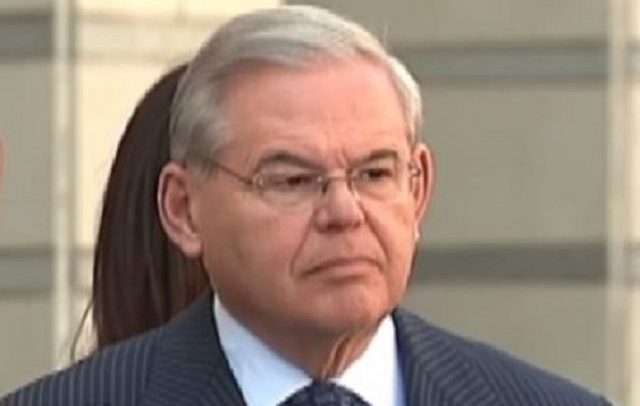
Attorneys for the Democrat and his longtime friend, Florida eye doctor Salomon Melgen, had accused U.S. District Judge William Walls in a motion filed over the weekend of tying their hands with his evidence rulings during the first eight weeks of the trial.
The filing alleged Walls’ rulings have “deprived Defendants of their Fifth and Sixth Amendments rights to a fair trial, to an adequate defense, and to confront the witnesses against them.”
In strongly worded remarks Monday, Walls chided the defense for “failing to acknowledge that they are bound by the rules of evidence.
“There’s not even palpable merit to what you wish,” he added.
Menendez is charged with accepting free flights on a private jet and other gifts from Melgen in exchange for political influence. Much of the two men’s defense centers around their longtime friendship, which attorneys say explains the gifts.
Central to an indictment that charges the men with bribery, fraud and conspiracy, meanwhile, is that in return for the gifts, Menendez pressured executive branch officials to help Melgen with his $8.9 million Medicare billing dispute and with a stalled port screening contract in the Dominican Republic.
Defense attorneys alleged in their mistrial motion that Walls hasn’t sufficiently let them introduce witnesses or evidence to show that Menendez’s intent in meeting with those officials was to discuss broad policy issues and not Melgen’s specific concerns.
On frequent occasions, Walls has justified his rulings by saying the defense’s evidence is either irrelevant or repetitive and that Melgen’s disputes aren’t an issue for the jury to decide — only whether a bribery arrangement existed.
On Monday, he didn’t budge.
The defense “wants to spend morning, noon and night” discussing details of the port contract and the Medicare dispute,” he said. “It’s a question for this court to determine when enough is enough.”
The defense is expected to rest its case this week, after which jurors would hear closing arguments. The most serious charge the two men face, honest services fraud, carries a maximum 20-year prison sentence.
Walls already has denied previous motions to have the case thrown out, most recently two weeks ago when defense attorneys alleged prosecutors hadn’t proved evidence of bribery under a narrowed definition of the crime stemming from a U.S. Supreme Court decision last year.
This article was written by David Porter of the AP.
[Image via Fox News screengrab]